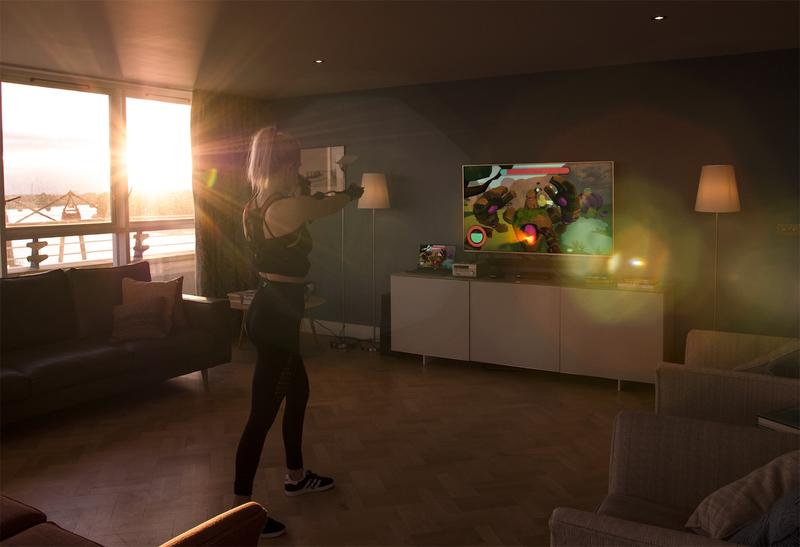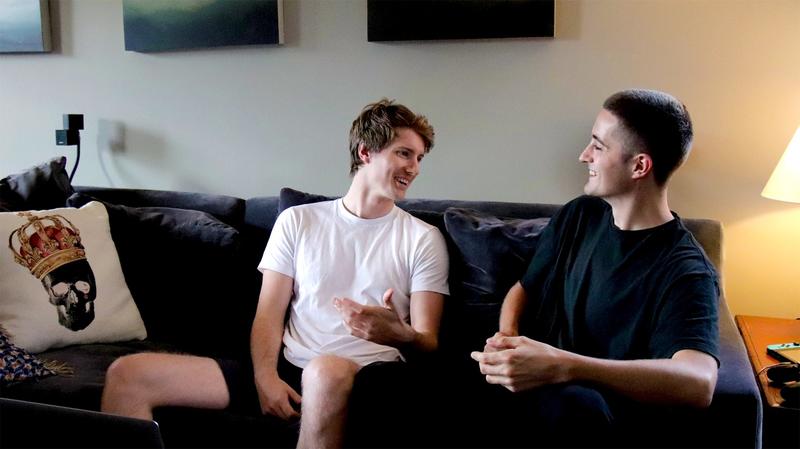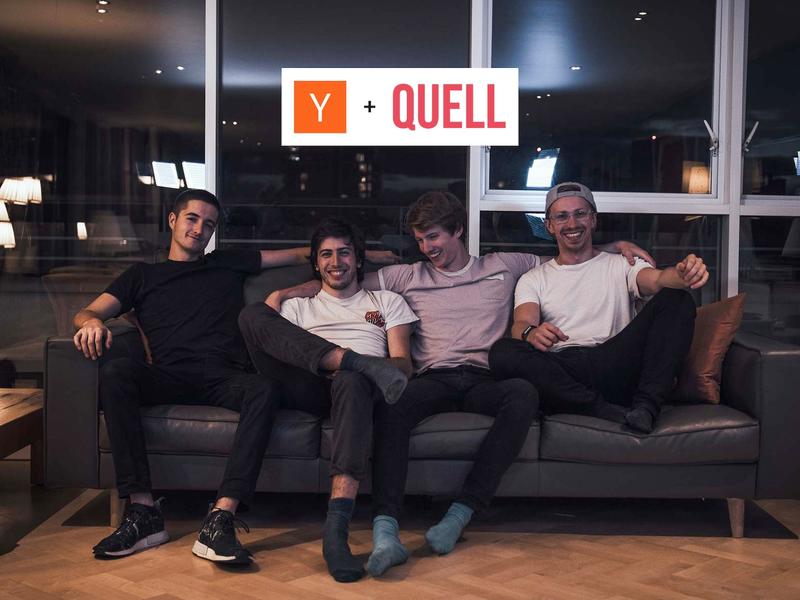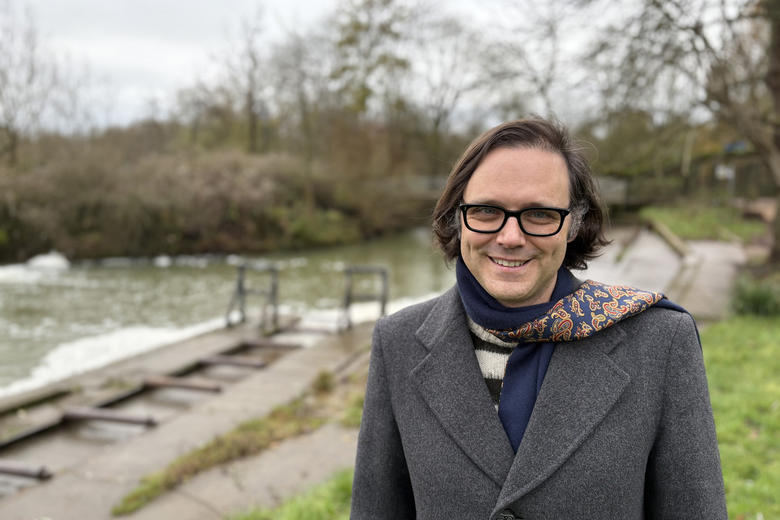ALUMNI STORIES: ‘WE WANTED TO REVOLUTIONISE THE GAMIFICATION OF EXERCISE’

ALUMNI STORIES: 'WE WANTED TO REVOLUTIONISE THE GAMIFICATION OF EXERCISE'
Martin Tweedie (St Edmund Hall, 2010) and Cameron (Cam) Brookhouse (St Edmund Hall, 2010) created QUELL for a brand new way for people to combine gaming and exercise
Published: 23 September 2020
Share this article
What drew you both to studying at Oxford?
CB: I came to Oxford because I wanted to learn from the best and the brightest. I chose Materials Science because it blended together the hardcore parts of chemistry, physics and engineering with a focus on making real, tangible things.
MT: My interest in STEM subjects comes from my father, who is a chemistry teacher. When applying to University, I looked for a subject that combined my interest in mathematics, physics and engineering, and landed on Materials Science. The high standard of teaching and fast pace of Oxford seemed like the perfect fit.

Fast-forward to now, how did the idea for QUELL come about?
CB: We wanted to revolutionise the gamification of exercise. We’ve always been frustrated by the pervasive acceptance of the idea that exercise should feel like work, when it could and should be fun. Gamification seems like an obvious solution, but people have tried that before and it hasn’t stuck. We think that’s because previous efforts have compromised on the gaming (it’s shallow, repetitive or bland) or the exercise (you’re just waving your arms around and it isn’t doing much). We started Quell with the goal of making a real game combined with high-impact exercise.
What are your roles within the company?
CB: I’m the CEO. My job is to build the strategy, manage the work and pitch the company to investors.
MT: And I took the role of CTO. My job is to build the technology that makes Quell work.
We also work alongside our fellow co-founders Doug Stidolph (COO) and Lorenzo Spreafico (CPO), whom we have known for many years.
Cam, what would you say your biggest challenges are as a start-up?
Our biggest challenge is selling investors on hardware. Hardware carries technical risk and is capital intensive. Investors are much more comfortable with software. We’ve continued down the hardware route because we believe that it’s key to the exercise impact and to the user experience – people want to feel their punches land. We’ve addressed investor concerns by streamlining product design to the UX essentials, as well as taking Quell to Kickstarter to generate our own manufacturing capex.
Martin, you did a DPhil in Materials, what are some of the challenges of moving from research/lab into real-world applications?
I would say that my experience has been similar in some regards: I’m still working on solving interesting problems related to electronic devices and sensors! The change of pace did take some adjustment though, as things tend to move a lot quicker in start-up land than academia. My experience in my DPhil was a bit more focussed on longer periods of solo work, while here I am constantly going back and forth between team members, advisors and associates to ensure that things keep developing as quickly as possible. My DPhil research was also in the decidedly more nascent field of 2D materials, and designing devices for manufacturing naturally comes with a very different set of considerations compared to building bespoke sensors at the lab scale.
What advice would both of you give to entrepreneurs?
CB: Ideas are cheap. Don’t quit your day job until you’ve found a team with the skills and grit to turn them into reality. You need people who can build the product, people who can develop and execute against a strategy, and people who can sell the vision. You also need some real evidence that someone will pay for what you’re making. Your friends will tell you that your idea is great, but the only trustworthy indicator that you’re solving a challenge people care about is revenue.
MT: Really just to develop a broad skill set, and keep putting yourself in situations in which to meet interesting people and talk about what you’re both doing. You never know what might come out of a casual conversation! Start-ups work best as a community, and the more advice you can offer, the more you are likely to receive.

You recently received a partnership with Y Combinator, can you tell us more about that?
CB: Y Combinator is the start-up dream. We feel incredibly privileged to have been accepted into the programme. Every week, we get one-to-one advice from people who’ve built billion-dollar companies. It feels a lot like Oxford’s tutorial system - there’s just no substitute for focussed discussion with experts who care about your success.
MT: Honestly, it’s been a wild ride! We’d been tossing the idea back and forth for a while, but the team only came together in person when we were putting together our application to YC back in March. After we submitted, and with lockdown coming into effect in the UK, we moved back to working remotely and continued to develop the idea until we finally got the news from YC in early June, to start the following week. After that, I wrapped things up where I was and moved to London a week later so that we could work together in person as much as possible (while of course still following government guidelines!).
Our partners and the wider community at YC have been instrumental in the quick development of Quell, helping us develop the best strategies, source talent, and providing access to a wealth of advice across all aspects of the business.
How do you see the future of the company?
CB: In the short-term, we want to build an amazing game which helps people enjoy and commit to exercise. We want to listen to users and guide development on the basis of their thoughts to ensure we’re delivering exactly what they want.
Over the longer term, we want to broaden out into new games, new forms of exercise and, ultimately, repeat this process for other habits and patterns which people struggle with. Diet, addiction, procrastination, education - there are so many fields where removing barriers and boosting rewards could be a massive force for good. We want to make it happen.
MT: We just launched our first Kickstarter to help us scale up production of Quell. Check us out here! Beyond that, we will be growing our team to help us fully develop the game world, along with constantly iterating on the hardware component to make it the best experience possible.
Longer-term, we plan to open up the hardware to 3rd-party developers to produce other games for our system, alongside continued support and development of the base Quell experience. Even further ahead, we want to expand on this idea of gamifying habits beyond the boxing-based workouts we offer at the moment. We see Quell as the first entry in an ecosystem of products helping users commit to and enjoy good habits like exercise, getting proper sleep or eating well.
You can find out more about QUELL on their website: playquell.com















